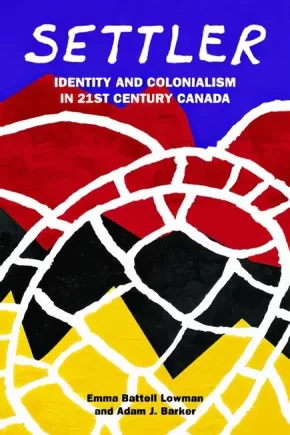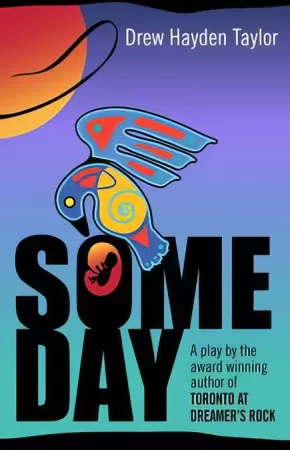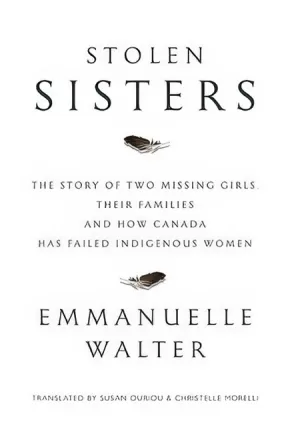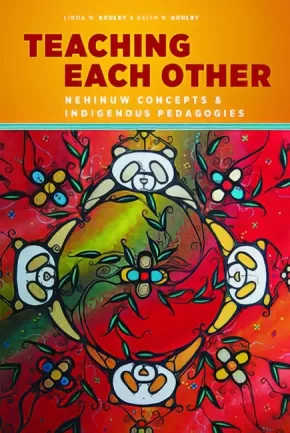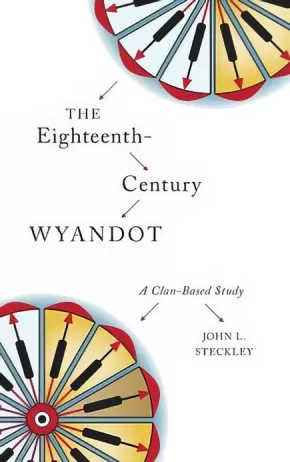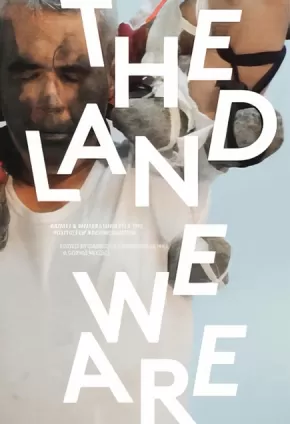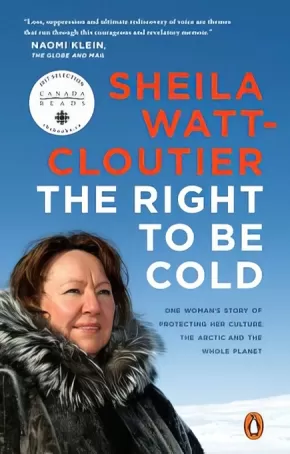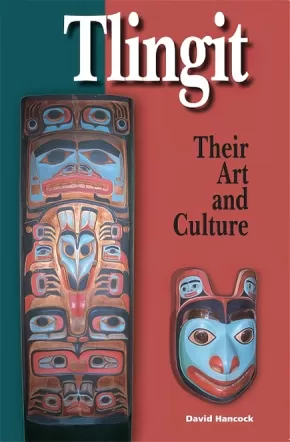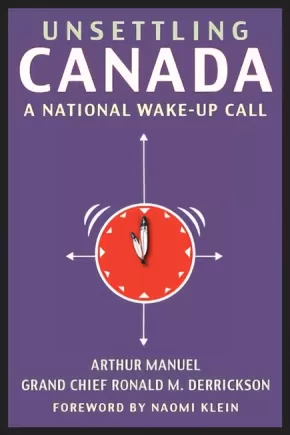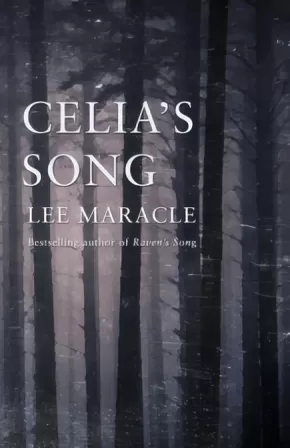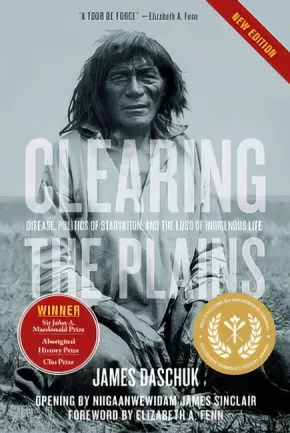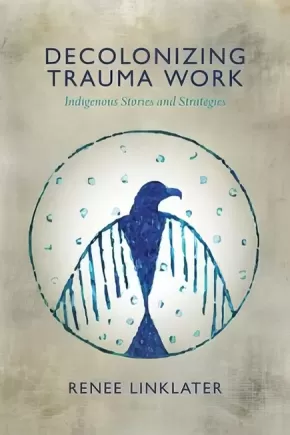
Indigenous Studies
871
-
885
of
1030 Results;
Sort By
Go To
of 69
Settler: Identity and Colonialism in 21st Century Canada
$22.00
Format:
Paperback
Text Content Territories:
Indigenous Canadian;
Grade Levels: University/College;
ISBN / Barcode: 9781552667781
Synopsis:
Synopsis:
Canada has never had an “Indian problem”— but it does have a Settler problem. But what does it mean to be Settler? And why does it matter?
Through an engaging, and sometimes enraging, look at the relationships between Canada and Indigenous nations, Settler: Identity and Colonialism in 21st Century Canada explains what it means to be Settler and argues that accepting this identity is an important first step towards changing those relationships. Being Settler means understanding that Canada is deeply entangled in the violence of colonialism, and that this colonialism and pervasive violence continue to define contemporary political, economic and cultural life in Canada. It also means accepting our responsibility to struggle for change. Settler offers important ways forward — ways to decolonize relationships between Settler Canadians and Indigenous peoples — so that we can find new ways of being on the land, together.
This book presents a serious challenge. It offers no easy road, and lets no one off the hook. It will unsettle, but only to help Settler people find a pathway for transformative change, one that prepares us to imagine and move towards just and beneficial relationships with Indigenous nations. And this way forward may mean leaving much of what we know as Canada behind.
Some Day
$12.95
Format:
Paperback
Text Content Territories:
Indigenous Canadian; First Nations; Anishinaabeg; Ojibway;
ISBN / Barcode: 9781927083345
Synopsis:
Synopsis:
Someday is a powerful play by award-winning playwright Drew Hayden Taylor. The story in Someday, though told through fictional characters and full of Taylor's distinctive wit and humour, is based on the real-life tragedies suffered by many Native Canadian families.
Anne Wabung's daughter was taken away by children's aid workers when the girl was only a toddler. It is Christmastime 35 years later, and Anne's yearning to see her now-grown daughter is stronger than ever.
When the family is finally reunited, however, the dreams of neither women are fulfilled.
The setting for the play is a fictional Ojibway community, but could be any reserve in Canada, where thousands of Native children were removed from their families in what is known among Native people as the "scoop-up" of the 1950s and 1960s. Someday is an entertaining, humourous, and spirited play that packs an intense emotional wallop.
Additional Information
142 pages | 5.50" x 8.50" | Paperback
Stolen Sisters: The Story of Two Missing Girls, Their Families, and How Canada Has Failed Indigenous Women
$26.99
Format:
Paperback
Text Content Territories:
Indigenous Canadian;
ISBN / Barcode: 9781443445160
Synopsis:
Synopsis:
In 2014, the nation was rocked by the brutal violence against young Aboriginal women Loretta Saunders, Tina Fontaine and Rinelle Harper. But tragically, they were not the only Aboriginal women to suffer that year. In fact, an official report revealed that since 1980, 1,200 Canadian Aboriginal women have been murdered or have gone missing. This alarming official figure reveals a national tragedy and the systemic failure of law enforcement and of all levels of government to address the issue.
Journalist Emmanuelle Walter spent two years investigating this crisis and has crafted a moving representative account of the disappearance of two young women, Maisy Odjick and Shannon Alexander, teenagers from western Quebec, who have been missing since September 2008. Via personal testimonies, interviews, press clippings and official documents, Walter pieces together the disappearance and loss of these two young lives, revealing these young women to us through the voices of family members and witnesses.
Stolen Sisters is a moving and deeply shocking work of investigative journalism that makes the claim that not only is Canada failing its First Nations communities, but that a feminicide is taking place.
Additional Information
240 pages | 5.00" x 8.00"
Teaching Each Other
$32.95
Format:
Paperback
Text Content Territories:
Indigenous Canadian; First Nations; Cree (Nehiyawak);
ISBN / Barcode: 9780774827584
Synopsis:
Synopsis:
In recent decades, educators have been seeking ways to improve outcomes for Indigenous students. Yet most Indigenous education still takes place within a theoretical framework based in Eurocentric thought. Teaching Each Other provides an alternative framework for teachers working with Indigenous students – one that moves beyond merely acknowledging Indigenous culture to one that actually strengthens Indigenous identity. Drawing on Nehinuw (Cree) concepts such as kiskinaumatowin, or "teaching each other," Goulet and Goulet demonstrate how teachers and students can become partners in education. They provide a template for educators anywhere who want to engage with students whose culture is different from that of the mainstream.
Additional Information
256 pages | 6.00" x 9.00"
The Eighteenth-Century Wyandot: A Clan-Based Study
$43.99
Format:
Paperback
Text Content Territories:
Indigenous American; Native American; Huron-Wendat (Ouendat); Indigenous Canadian; First Nations; Huron-Wendat (Ouendat);
Grade Levels: University/College;
ISBN / Barcode: 9781771122009
Synopsis:
Synopsis:
The Wyandot were born of two Wendat peoples encountered by the French in the first half of the seventeenth century—the otherwise named Petun and Huron—and their history is fragmented by their dispersal between Quebec, Michigan, Kansas, and Oklahoma. This book weaves these fragmented histories together, with a focus on the mid-eighteenth century.
Author John Steckley claims that the key to consolidating the stories of the scattered Wyandot lies in their clan structure. Beginning with the half century of their initial diaspora, as interpreted through the political strategies of five clan leaders, and continuing through the eighteenth century and their shared residency with Jesuit missionaries—notably, the distinct relationships different clans established with them—Steckley reveals the resilience of the Wyandot clan structure. He draws upon rich but previously ignored sources—including baptismal, marriage, and mortuary records, and a detailed house-to-house census compiled in 1747, featuring a list of male and female elders—to illustrate the social structure of the people, including a study of both male and female leadership patterns. A recording of the 1747 census as well as translated copies of letters sent between the Wyandot and the French is included in an appendix.
Paperback: 316 pages
Physical Dimensions: 6.00" x 9.00"
The Land We Are: Artists and Writers Unsettle the Politics of Reconciliation
$24.95
Editors:
Format:
Paperback
Text Content Territories:
Indigenous Canadian;
ISBN / Barcode: 9781894037631
Synopsis:
Synopsis:
The Land We Are is a stunning collection of writing and art that interrogates the current era of reconciliation in Canada. Using visual, poetic, and theoretical language, the contributors approach reconciliation as a problematic narrative about Indigenous-settler relations, but also as a site where conversations about a just future must occur. The result of a four-year collaboration between artists and scholars engaged in resurgence and decolonization, The Land We Are is a moving dialogue that blurs the boundaries between activism, research, and the arts.
The contributors to this book include leading artists and scholars engaged in questions of resurgence, restitution, and decolonization.
Contributors: Jordan Abel, Leah Decter, Jonathan Dewar, David Garneau, Ayumi Goto, Allison Hargreaves, Gabrielle L'Hirondelle Hill, Jaimie Isaac, David Jefferess, Layli Long Soldier, The New BC Indian Art and Welfare Society Collective, Sophie McCall, Peter Morin, Skeena Reece, Dylan Robinson, Sandra Semchuk, Adrian Stimson, Clement Yeh, and Keren Zaiontz.
Reviews
"This beautifully produced, richly illustrated volume not only offers readers a visual journey into the featured artistic installations and performance pieces, but through its creative use of text and graphic design is itself an artistic statement on reconciliation." --Winnipeg Free Press
Educator Information
Recommended for students in grades 11 and 12, as well as at a college/university level.
Additional Information
240 pages | 6.50" x 9.50"
The Right to Be Cold: One Woman's Story of Protecting Her Culture, the Arctic and the Whole Planet
$22.00
Format:
Paperback
Text Content Territories:
Indigenous Canadian; Inuit;
Grade Levels: 12; University/College;
ISBN / Barcode: 9780143187646
Synopsis:
Synopsis:
One of Canada's most passionate environmental and human rights activists addresses the global threat of climate change from the intimate perspective of her own Arctic childhood.
The Arctic ice is receding each year, but just as irreplaceable is the culture, the wisdom that has allowed the Inuit to thrive in the Far North for so long. And it's not just the Arctic. The whole world is changing in dangerous, unpredictable ways. Sheila Watt-Cloutier has devoted her life to protecting what is threatened and nurturing what has been wounded. In this culmination of Watt-Cloutier's regional, national, and international work over the last twenty-five years, The Right to Be Cold explores the parallels between safeguarding the Arctic and the survival of Inuit culture, of which her own background is such an extraordinary example. This is a human story of resilience, commitment, and survival told from the unique vantage point of an Inuk woman who, in spite of many obstacles, rose from humble beginnings in the Arctic to become one of the most influential and decorated environmental, cultural, and human rights advocates in the world.
Awards
- 2015 Ontario Historical Society Huguenot Society of Canada Award Winner
Reviews
"Loss, suppression and ultimate rediscovery of voice are themes that run through this courageous and revelatory memoir." —Naomi Klein, The Globe and Mail
"This is a book that needs to be read as the North becomes central to our future. It offers a perspective grounded in the culture and wisdom of northern people, seen through the lens of a remarkable woman as they seek to preserve 'The Right to be Cold.'" —Lloyd Axworthy, academic, former Minister of Foreign Affairs, and Nobel Peace Prize nominee
"This is a moving and passionate story from a committed woman who has bridged the ice age to the digital age. Her sophisticated views on the environment and the way the world works from her engaged involvement are brilliant and convincing." —The Right Honourable Adrienne Clarkson, journalist and former Governor General
Educator Information
This resource is also available in French: Le droit au froid: Combat d'une femme pour proteger sa culture, l'Arctique et la planete
Additional Information
|
Tlingit: Their Art and Culture
$12.95
Format:
Paperback
Text Content Territories:
Indigenous American; Alaska Native; Tlingit;
ISBN / Barcode: 9780888395306
Synopsis:
Synopsis:
When you visit southeast Alaska you encounter the Tlingit Indians and their very rich lands, diversified culture and wondrous art forms. You can visit from cruise ships, from the Alaska Ferry system, from private boats, from the air, or by following the highway systems though Hyder, Skagway or Haines.
The richness of the Tlingit culture flows from the incredible diversity and abundance of the surrounding seas: its fish, whales and sea life, the prolific clam beaches, and the incredible wealth from the spawning fish that feed the bears and eagles and nutrify the dense coniferous forest. The ease with which the natives could extract a good living provided much extra time to devote to developing an extraordinarily rich culture and a prolific art, as well as the warring and slave trading that set the northwest coast peoples apart from the other more food-deprived North American native peoples.
This book will give you a glimpse into the richess of their culture and art and afford you some understanding how the Tlingit evolved as part of this productive land.
Unsettling Canada: A National Wake-Up Call
$29.95
Format:
Paperback
Text Content Territories:
Indigenous Canadian;
ISBN / Barcode: 9781771131766
Synopsis:
Synopsis:
Unsettling Canada, a Canadian bestseller, is built on a unique collaboration between two First Nations leaders, Arthur Manuel and Grand Chief Ron Derrickson.
Both men have served as chiefs of their bands in the B.C. interior and both have gone on to establish important national and international reputations. But the differences between them are in many ways even more interesting. Arthur Manuel is one of the most forceful advocates for Aboriginal title and rights in Canada and comes from the activist wing of the movement. Grand Chief Ron Derrickson is one of the most successful Indigenous businessmen in the country.
Together the Secwepemc activist intellectual and the Syilx (Okanagan) businessman bring a fresh perspective and new ideas to Canada’s most glaring piece of unfinished business: the place of Indigenous peoples within the country’s political and economic space. The story is told through Arthur’s voice but he traces both of their individual struggles against the colonialist and often racist structures that have been erected to keep Indigenous peoples in their place in Canada.
In the final chapters and in the Grand Chief’s afterword, they not only set out a plan for a new sustainable indigenous economy, but lay out a roadmap for getting there.
Reviews
“This is the back story of both grassroots and backroom struggles that created the context in which we find ourselves today, one in which a new generation of First Nations leaders is demanding sovereignty and self-determination, and more and more non-Indigenous Canadians finally understand that huge swaths of this country we call Canada is not ours - or our government's - to sell.” — Naomi Klein, from the Foreword
“Pragmatic and helpful, this is a timely book for our fraught and political moment” — Quill & Quire
"Unsettling Canada is a breathtakingly beautiful story of Indigenous resistance, strength, and movement building. Unsettling Canada echoes the power of George Manuel's The Fourth World, centering the heart of the narrative deep inside a kind of Indigenous intelligence rarely shared outside our communities. This is the critical conversation that Canada and Indigenous peoples must have because it is centred on land, and, therefore, it is one of the most important books on Indigenous politics I've ever read." — Leanne Betasamosake Simpson, author of Dancing on Our Turtle's Back
Educator Information
This resource would be useful for courses in history, social justice, political science, and social studies. Recommended for students in grades 10 to 12 or those at a college/university level.
CONTENTS
Foreword Naomi Klein
Chapter 1 The Lay of the Land
Chapter 2 Institutionalizing a People: Indian Hospital, School, Jail
Chapter 3 White Paper to Red Paper: Drawing the Battle Lines
Chapter 4 Occupy Indian Affairs: Native Youth in Action
Chapter 5 Aboriginal Title: No Surrender
Chapter 6 The Constitution Express: A Grassroots Movement
Chapter 7 Don’t Let Them Bully You: A Business Interlude
Chapter 8 A Chief’s Concerns: Finances, the People, and the Land
Chapter 9 Upping the Ante: RCAP and a Landmark Court Decision
Chapter 10 The Battle in the Forest: The Trade in Indian Trees
Chapter 11 Sun Peaks to Geneva: Playgrounds and Fortresses
Chapter 12 Taking It to the Bank: Accounting for Unpaid Debt
Chapter 13 The Fourth World: A Global Movement
Chapter 14 Line of Defence: Side by Side for Mother Earth
Chapter 15 No Half Measures: The Price of Uncertainty
Chapter 16 Days of Protest: Young Activists Come Together
Chapter 17 The End of Colonialism
Afterword Grand Chief Ronald M. Derrickson
Acknowledgements
Appendix United Nations Declaration on the Rights of Indigenous Peoples
Notes
Index
Additional Information
288 pages | 6.00" x 9.00"
Unsettling Canada: A National Wake-Up Call - Second Edition
$29.95
Format:
Paperback
Text Content Territories:
Indigenous Canadian;
ISBN / Barcode: 9781771135566
Synopsis:
Synopsis:
A Canadian bestseller and winner of the 2016 Canadian Historical Association Aboriginal History Book Prize, Unsettling Canada is a landmark text built on a unique collaboration between two First Nations leaders.
Arthur Manuel (1951-2017) was one of the most forceful advocates for Indigenous title and rights in Canada; Grand Chief Ron Derrickson, one of the most successful Indigenous businessmen in the country. Together, they bring a fresh perspective and bold new ideas to Canada's most glaring piece of unfinished business: the place of Indigenous peoples within the country's political and economic space.
This vital second edition features a foreword by award-winning activist Naomi Klein and an all-new chapter co-authored by law professor Nicole Schabus and Manuel's son, Ska7cis, honouring the multi-generational legacy of the Manuel family's work.
Reviews
“Pragmatic and helpful, this is a timely book for our fraught and political moment” — Quill & Quire
"Unsettling Canada is a breathtakingly beautiful story of Indigenous resistance, strength, and movement building. Unsettling Canada echoes the power of George Manuel's The Fourth World, centering the heart of the narrative deep inside a kind of Indigenous intelligence rarely shared outside our communities. This is the critical conversation that Canada and Indigenous peoples must have because it is centred on land, and, therefore, it is one of the most important books on Indigenous politics I've ever read." — Leanne Betasamosake Simpson, author of Dancing on Our Turtle's Back
Educator Information
This resource would be useful for courses in history, social justice, political science, and social studies. Recommended for students in grades 10 to 12 or those at a college/university level.
Additional Information
320 pages | 6.00" x 9.00"
Ancient Pathways, Ancestral Knowledge: Ethnobotany and Ecological Wisdom of Indigenous Peoples of Northwestern North America
$150.00
Format:
Hardcover
Text Content Territories:
Indigenous American; Indigenous Canadian;
Reading Level: N/A
ISBN / Barcode: 9780773543805
Synopsis:
Synopsis:
How knowledge of plants and environments has been applied and shared over centuries and millennia by Indigenous peoples.
Volume 1: The History and Practice of Indigenous Plant Knowledge
Volume 2: The Place and Meaning of Plants in Indigenous Cultures and Worldviews
Nancy Turner has studied Indigenous peoples' knowledge of plants and environments in northwestern North America for over forty years. In Ancient Pathways, Ancestral Knowledge, she integrates her research into a two-volume ethnobotanical tour-de-force. Drawing on information shared by Indigenous botanical experts and collaborators, the ethnographic and historical record, and from linguistics, palaeobotany, archaeology, phytogeography, and other fields, Turner weaves together a complex understanding of the traditions of use and management of plant resources in this vast region. She follows Indigenous inhabitants over time and through space, showing how they actively participated in their environments, managed and cultivated valued plant resources, and maintained key habitats that supported their dynamic cultures for thousands of years, as well as how knowledge was passed on from generation to generation and from one community to another. To understand the values and perspectives that have guided Indigenous ethnobotanical knowledge and practices, Turner looks beyond the details of individual plant species and their uses to determine the overall patterns and processes of their development, application, and adaptation.
Volume 1 presents a historical overview of ethnobotanical knowledge in the region before and after European contact. The ways in which Indigenous peoples used and interacted with plants - for nutrition, technologies, and medicine - are examined. Drawing connections between similarities across languages, Turner compares the names of over 250 plant species in more than fifty Indigenous languages and dialects to demonstrate the prominence of certain plants in various cultures and the sharing of goods and ideas between peoples. She also examines the effects that introduced species and colonialism had on the region's Indigenous peoples and their ecologies.
Volume 2 provides a sweeping account of how Indigenous organizational systems developed to facilitate the harvesting, use, and cultivation of plants, to establish economic connections across linguistic and cultural borders, and to preserve and manage resources and habitats. Turner describes the worldviews and philosophies that emerged from the interactions between peoples and plants, and how these understandings are expressed through cultures’ stories and narratives. Finally, she explores the ways in which botanical and ecological knowledge can be and are being maintained as living, adaptive systems that promote healthy cultures, environments, and indigenous plant populations.
Ancient Pathways, Ancestral Knowledge both challenges and contributes to existing knowledge of Indigenous peoples' land stewardship while preserving information that might otherwise have been lost. Providing new and captivating insights into the anthropogenic systems of northwestern North America, it will stand as an authoritative reference work and contribute to a fuller understanding of the interactions between cultures and ecological systems.
Educator Information
Table of Contents
Volume One
Figures and Tables ix
Preface and Acknowledgments xv
Note on the Writing System Used in This Book xxxi
1 Introduction to the Book: Ethnobotanical and Ethnoecological Knowledge across Time and Space 3
Part One | History
2 Into the Past: Ancient Relationships among People, Plants, and Environments 43
3 Reflections on Plant Names in Understanding the History of People-Plant Relationships 117
4 Change, Loss, and Adaptation of Plant Traditions 191
Part Two | Development
5 Plants as Food: Development, Diversity, Dissemination 263
6 Plant Use in Technology over Time and Space 335
7 Herbal Medicine and Healing Traditions 415
Appendix 1: Major Sources of Information for the Book 467
Appendix 2: Names of Selected Native Plant Species in Indigenous Languages of Northwestern North America 473
Appendix 3: Names of Two Introduced Plants (Turnip and Potato) in Indigenous Languages of Northwestern North America 507
Notes 515
Volume Two
Figures and Tables ix
Preface xiii
Part Three - Integration and ManaGement
8 Moving for the Harvest: Seasonal Rounds and Plant Knowledge 3
9 Cultural Institutions Related to Ethnobotanical Knowledge and Practice 51
10 Trade and Exchange: Sharing Plant Products and Ethnobotanical Knowledge across Geographical and Cultural Space 101
11 Management and Sustainability of Plant Resources and Habitats 145
Part Four - UnderlyinG Philosophy
12 Narratives in Transmission of Ethnobotanical Knowledge 231
13 Worldview and Belief Systems in Ethnobotanical Knowledge Systems 297
14 Ancient Pathways and New Pathways for Retaining and Renewing Botanical and Environmental Knowledge Systems for the Future 351
Notes 413
References 441
Index of Plant Species 503
General Index 513
Additional Information
1056 pages | 6.00" x 9.00" | Hardcover
Celia's Song
$22.95
Format:
Paperback
Text Content Territories:
Indigenous Canadian; First Nations; Nuu-chah-nulth (Nootka);
ISBN / Barcode: 9781770864511
Synopsis:
Synopsis:
Mink is a witness, a shape shifter, compelled to follow the story that has ensnared Celia and her village, on the West coast of Vancouver Island in Nu:Chahlnuth territory. Celia is a seer who - despite being convinced she's a little "off" - must heal her village with the assistance of her sister, her mother and father, and her nephews. While mink is visiting, a double-headed sea serpent falls off the house front during a fierce storm. The old snake, ostracized from the village decades earlier, has left his terrible influence on Amos, a residential school survivor. The occurrence signals the unfolding of an ordeal that pulls Celia out of her reveries and into the tragedy of her cousin's granddaughter. Each one of Celia's family becomes involved in creating a greater solution than merely attending to her cousin's granddaughter. Celia's Song relates one Nu:Chahlnuth family's harrowing experiences over several generations, after the brutality, interference, and neglect resulting from contact with Europeans.
Educator Information
Grade 11/12 English First Peoples resource for the unit Further Steps toward Reconciliation.
Additional Information
280 pages | 5.50" x 8.50"
Clearing the Plains: Disease, Politics of Starvation, and the Loss of Indigenous Life
$27.95
Format:
Paperback
Text Content Territories:
Indigenous Canadian;
ISBN / Barcode: 9780889776227
Synopsis:
Synopsis:
Revealing how Canada's first Prime Minister used a policy of starvation against Indigenous people to clear the way for settlement, the multiple award-winning Clearing the Plains sparked widespread debate about genocide in Canada.
In arresting, but harrowing, prose, James Daschuk examines the roles that Old World diseases, climate, and, most disturbingly, Canadian politics—the politics of ethnocide—played in the deaths and subjugation of thousands of Indigenous people in the realization of Sir John A. Macdonald’s "National Dream."
It was a dream that came at great expense: the present disparity in health and economic well-being between Indigenous and non-Indigenous populations, and the lingering racism and misunderstanding that permeates the national consciousness to this day.
This new edition of Clearing the Plains has a foreword by Pulitzer Prize winning author, Elizabeth Fenn, an opening by Niigaanwewidam James Sinclair, and explanations of the book’s influence by leading Canadian historians. Called “one of the most important books of the twenty-first century” by the Literary Review of Canada, it was named a “Book of the Year” by The Globe and Mail, Quill & Quire, the Writers’ Trust, and won the Sir John A. Macdonald Prize, among many others.
Reviews
"Clearing the Plains is a tour de force that dismantles and destroys the view that Canada has a special claim to humanity in its treatment of indigenous peoples. Daschuk shows how infectious disease and state-supported starvation combined to create a creeping, relentless catastrophe that persists to the present day. The prose is gripping, the analysis is incisive, and the narrative is so chilling that it leaves its reader stunned and disturbed. For days after reading it, I was unable to shake a profound sense of sorrow. This is fearless, evidence-driven history at its finest." —Elizabeth A. Fenn, author of Pox Americana
"Required reading for all Canadians." —Candace Savage, author of A Geography of Blood
"Clearly written, deeply researched, and properly contextualized history...Essential reading for everyone interested in the history of indigenous North America." —J.R. McNeill, author of Mosquito Empires
Additional Information
386 pages | 6.00" x 9.00" | 25 b&w photos, 7 maps and figures | Paperback
Cree Dictionary and Pocket Phrase Book Set, N Dialect
$19.95
Format:
Paperback
Synopsis:
“A good method of learning the Cree language, with its unique sounds, involves verbal communication between teacher and students.”
This Cree Dictionary and Everyday Phrases & Words book set was written by the last remaining fluent Cree Elders of Ochekiwi Sipi Cree Nation (Fisher River). Some of the Elders have passed on and this set is dedicated to their memory. The dialect is Maskekomowina – Swampy Cree, or N Dialect.
In both books, the English words are translated into Cree using Roman orthography, phonetics, and Cree syllabics. The Dictionary is a 149-page, coil bound publication. The Everyday Phrases & Words is a pocket-sized, 39-page booklet.
Decolonizing Trauma Work: Indigenous Stories and Strategies
$27.00
Format:
Paperback
Text Content Territories:
Indigenous Canadian;
Reading Level: N/A
ISBN / Barcode: 9781552666586
Synopsis:
Synopsis:
In Decolonizing Trauma Work, Renee Linklater explores healing and wellness in Indigenous communities on Turtle Island. Drawing on a decolonizing approach, which puts the “soul wound” of colonialism at the centre, Linklater engages ten Indigenous health care practitioners in a dialogue regarding Indigenous notions of wellness and wholistic health, critiques of psychiatry and psychiatric diagnoses, and Indigenous approaches to helping people through trauma, depression and experiences of parallel and multiple realities. Through stories and strategies that are grounded in Indigenous worldviews and embedded with cultural knowledge, Linklater offers purposeful and practical methods to help individuals and communities that have experienced trauma. Decolonizing Trauma Work, one of the first books of its kind, is a resource for education and training programs, health care practitioners, healing centres, clinical services and policy initiatives.
Additional Information
176 pages | 6.00" x 9.00" | Paperback
Sort By
Go To
of 69

